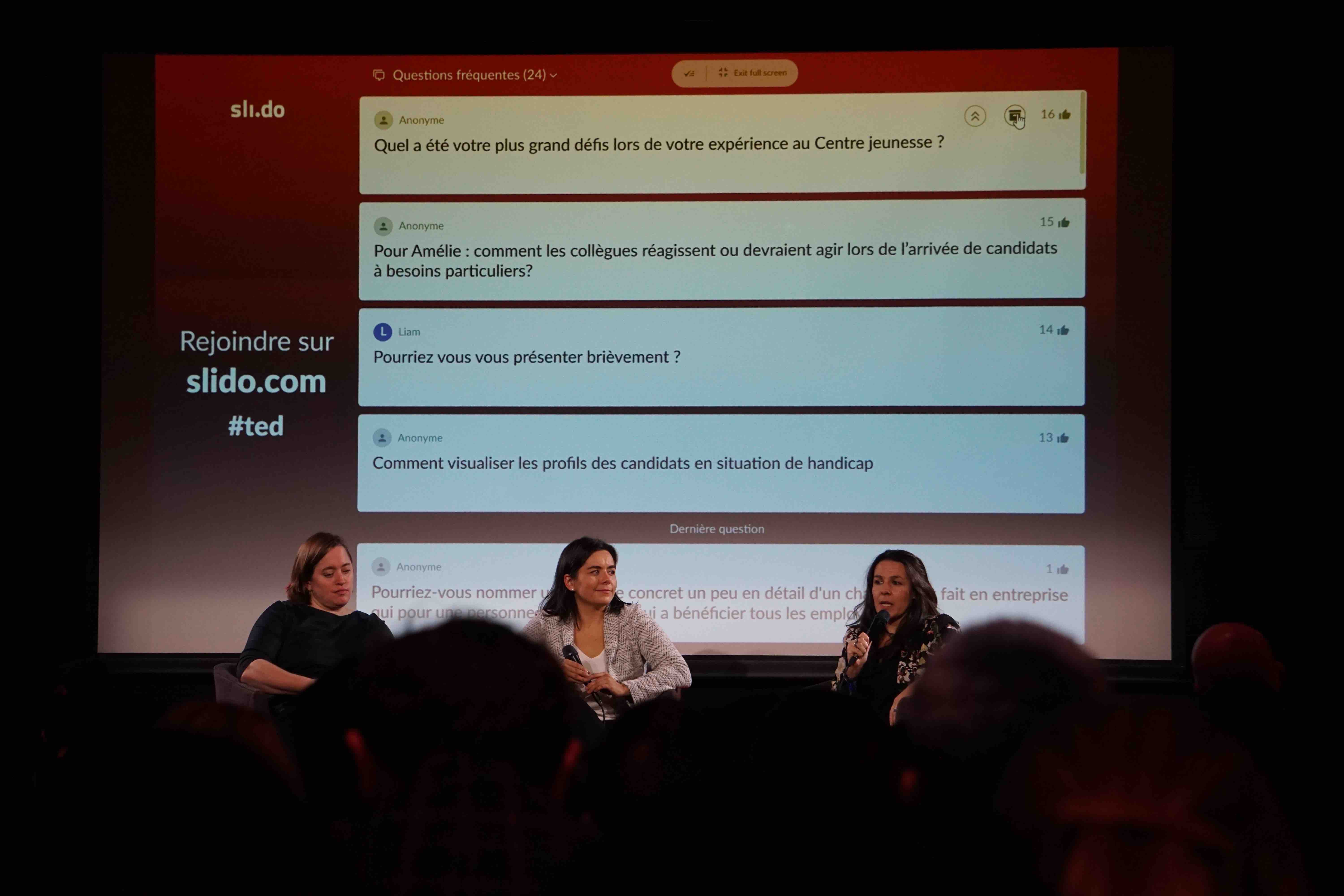Female speakers discuss the goals of their equality and diversity-driven projects
Last Tuesday, the Phi Centre hosted 120 people who came to listen to three women: Emily Laliberté, founder of Coup d’éclats, Claire Gaillard, co-editor-in-chief for Lez Spread the Word magazine and Amélie Duranleau, active member of the association Prêts, disponibles et capables (Ready, Willing and Able).
What do these women have in common, other than the fact they are from Montreal? They want to improve human rights in society, specifically concerning those who are vulnerable to marginalization. Laliberté, Gaillard and Duranleau hosted a TED Talk focused on human rights and freedom, and shared projects that enable innovation to surpass discussions and take action.
Each speaker had fifteen minutes to explain the work they are doing to advance human rights and freedom with three focal points: art as a way of expression, magazine-writing as a way of supporting diversity and communication as key to integration.
The first speaker, Laliberté, is an artist who said she believes art can change the world. She began working with marginalized individuals while using art as a tool of expression. Laliberté described her virtual reality project, 310, which immerses spectators into a temporary home. As viewers navigate the dorms and common areas of the youth centre, they listen to voice overs from actual residents of the Laval Child and Youth Protection Centre, reflecting on what their future might hold and whether it can change. These testimonies demonstrate the problematic conditions that young girls living in youth centres face. The project inspired a committee that is working to improve conditions at the centre.
Gaillard spoke next. “I can’t fight for a problem that I am not concerned with directly. So I found journalism to share stories,” said Gaillard. As co-editor-in-chief, Gaillard takes intersectional minorities into consideration while making the Lez Spread the Word. “We have a lot of facets in our personality which form the whole, you don’t have to choose a special fight. The magazine also gives a voice to the lesbian community and the issues and challenges they face. Gaillard said that it’s important to be aware of one’s privilege and not wait to be personally affected to be concerned with fighting these challenges.
Duranleau focused on the idea of increasing the participation of people with intellectual disabilities or Autism Spectrum Disorder with the program Ready, Willing and Able. She fights for people with disabilities because she believes “they deserve to have a job like everyone else.” Ready, Willing and Able has helped employers see the benefits of having people with disabilities in their companies. Duranleau explained it’s necessary to build bridges and connections with people with disabilities.
The speakers brought attention to the injustices that affect those who deviate from what society considers to be the norm. The speakers highlighted that differences and deviances are created through an inherently heteronormative society. They showed that the average person can contribute to change. The conference proved that Montrealers can get behind inspirational projects with the goal of changing the world in their own way.
About TED:
TED Conferences were created in 1984 in New York City with the goal of spreading ideas around the world. In 2009, Richard Saul Wurman and Harry Marks, its founders, decided to extend the concept to anyone interested in organizing conferences. TEDxMontreal was created in 2012 by volunteers. The ‘x’ means the conference was independently organized.
Photo by Elise Martin.




